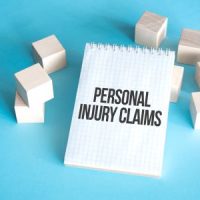How And Why Are Experts Used In A Personal Injury Case?

You’ve probably heard of experts being used in cases, and in many previous blogs, we’ve spoken about unique types of experts. But how are experts used, and when are they needed? There is actually more fighting between the parties over experts that you may think, and expert testimony isn’t just automatically admitted into court.
Why Expert Witnesses?
As a general rule, every witness needs to have personal knowledge of things that they are saying in court. Normally that’s easy; if you fall in a store, you have personal knowledge about what happened to you, so you can testify to that. An officer that investigates an accident scene was there, and did the investigation, so they have personal knowledge to testify about the accident scene.
But a lot of testimony in a personal injury case is highly technical, or scientific. The most common and obvious example is medical testimony. You can testify how you hurt, or what your limitations are, but you likely don’t have the medical knowledge to testify about the exact nature of your injury and what it means and your future prognosis. So, you need an expert to testify.
Requirements for Experts
To be an expert, the witness must have experience in the area that they testify about. That doesn’t necessarily mean an education or a specialized advanced degree. In fact, in many cases, experts are people that just have a lot of experience. If you are testifying about a faulty roof, a roofer with 20 years experience may be a perfect expert, even though they may not have any type of advanced degree.
Is the Testimony Admissible?
Usually, there is little fight about whether someone is an expert, although it can happen. The bigger fight is often whether the expert’s testimony is admissible in court. Not everything a witness says can be used in court.
The law wants to ensure that expert and scientific opinions are generally accepted, and are “good science.”
That generally will require that the expert, in forming their opinions, uses data, and methods, that the scientific community accepts as standard. It will also require that the expert properly applied the data to the facts of the case. For example, accident reconstruction data about trucking accidents couldn’t be applied to an accident between two cars.
Note that the expert’s opinion can be controversial, or even generally not accepted—many things in science or technology are new or controversial. The court will just look at the methodology used by the expert, to see if it is one that the scientific community accepts and agrees with.
Often there is fighting between the parties over how many experts can be used, and what they can and cannot say to the jury. The judge will ultimately determine what testimony the jury gets to hear from experts.
Call the West Palm Beach personal injury attorneys at Pike & Lustig today to see what to expect in your personal injury trial.
Sources:
law.cornell.edu/wex/daubert_standard
jdsupra.com/legalnews/expert-witnesses-and-the-daubert-7162871/
